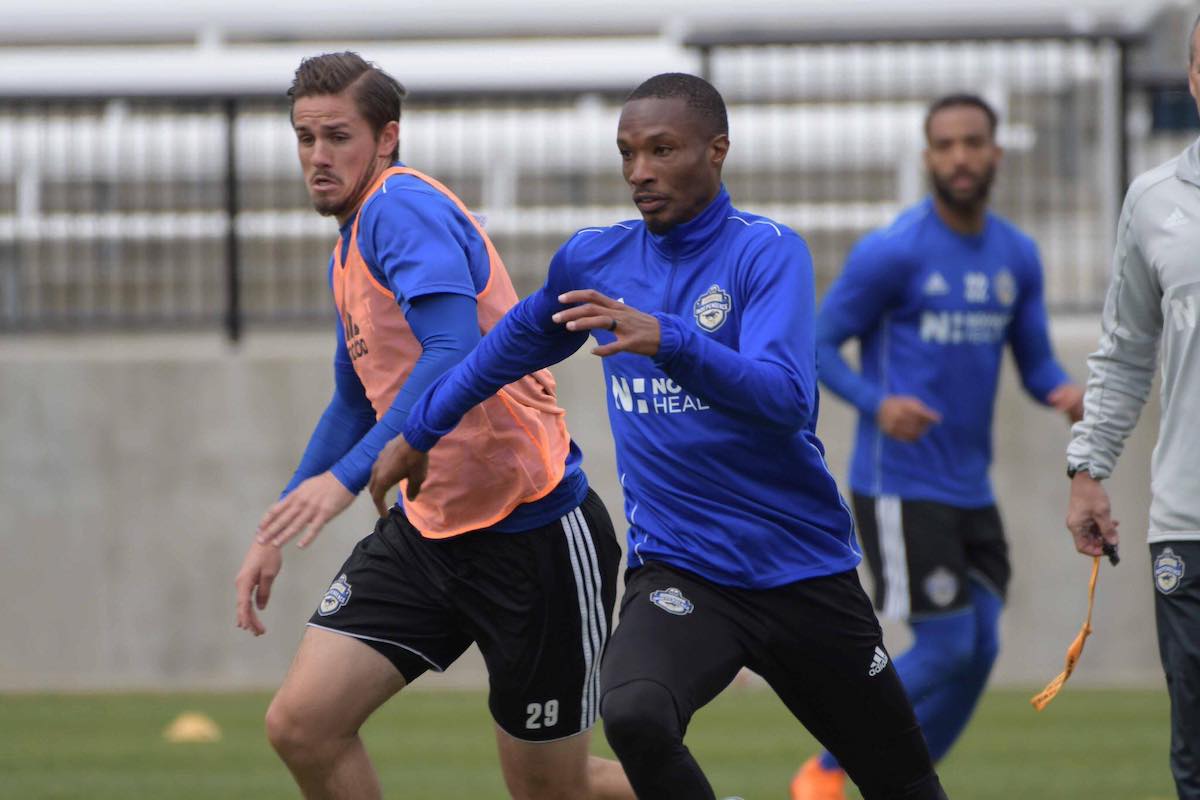Since the killing of George Floyd last week in Minneapolis, the never-ending injustice facing black people in America has come back to the forefront with protests across the country and social media posts with the hashtag #BlackLivesMatter. Rather than just putting out a cookie-cutter statement in support of the black community, the Beautiful Game Network wanted to give this platform to black players across the USL Championship to explain the struggle they go through on a daily basis, their feelings during these intense times, the things they would like to see changed in the future, and more.
(These quotes were primarily gathered by Hugh Roberts, Charlotte Independence defender, Backyard Footy host, and the man behind these powerful words)
What are you feeling right now with everything going on?
Kevan George: Initially fear, anger, and sadness surfaced, but as things continue to unfold, it is hard to process any feelings. 2020 has really been the year of vision with so many hidden truths coming to the forefront. The underlying problems and injustices that have been swept underneath the rug has finally been exposed and sparked responses/action amongst all groups of people. Some people have kept these issues under the rug for decades and are uncomfortable with addressing it, while the majority have decided to stand with us.
Have you dealt with racism on the pitch? How did you react and how difficult is it to focus on a match at that point?
Kevan George: I have not dealt with racism on the pitch, but ex-teammates and close friends have experienced it in college soccer and the professional ranks. They recall fans, both young and older white folks, screaming racial slurs amidst fan support so they cannot be easily identified. My friends did not report it to their coaches at the time because they felt that it would be pointless to engage in a battle where social injustices were already prevalent in everyday life and did not receive much attention.
The honest truth is there are probably fans that watch and root for you on Saturdays in their favorite team’s kit that don’t respect you as a person because of the color of your skin. How does that make you feel?
Kevan George: If there are fans that do not respect me because of their preconceived beliefs, that’s a problem that they’ve developed over time and have to solve from within. They didn’t get a chance to get to know me as a person so it would not affect me or my performance.
As a professional soccer player, how can you and your peers use your platform to help and what changes would you like to see made?
Kevan George: In addition to posting messages on various social media platforms, it is essential for us to have face-to-face conversations with people within our community. Engaging in face-to-face discussions with different groups in the community, regardless of how uncomfortable, is the most effective form of communication in times of crisis. It brings more meaning and credibility to the message being communicated and both parties could resolve any different opinions or move forward amicably. The point is not to get the opposing group on your side after an interaction, but more so to encourage future conversations and bring understanding to the cause. I also believe that the support and involvement of white teammates during this time and beyond will create the picture that #weAREstrongerTOGETHER. Minorities have banded together for many years on similar issues for decades and we are still at this point in 2020. The advocacy and solidarity of our white teammates will not only build an impenetrable bond on the field but will send a powerful message of how we as a country should come together as one unified voice.
While it’s an impossible task, if you had to show a movie or play a song for someone that isn’t a person of color to illustrate the struggle the most, what would that be and why?
Kevan George: “This Is America” by Childish Gambino is a perfect depiction that illustrates the struggles faced today. This music video touched on issues ranging from racial injustices, gun violence, and mental illness stigma that have plagued/crippled black people and its communities. These issues have been prevalent for decades, but now they’re being recorded to be viewed around the world as a subtle reminder that we are inferior to our white counterparts.
Are there any black-operated non-profits or charities that you support or that you’d like to acknowledge?
Kevan George: There aren’t any black-operated non-profits or charities that I actively participate in at the moment, but I’d wholeheartedly support those that pique my interest.
Who are some historical black figures that you especially pull guidance or wisdom from?
Kevan George: Bob Marley, Nelson Mandela, and Maya Angelou.
What would it mean to you to see owners/clubs put out statements against racism AND provide some action (donation, awareness, etc.) for the cause?
Kevan George: That gesture would be a very good step in the right direction. Professional sports organizations and owners are very influential in the communities and could often determine which direction the people sway on certain issues. With them echoing these statements, players will have more leverage and support when having these difficult conversations with those that may be less understanding of the severity of the situation at hand.
SOURCE: bgn.fm

